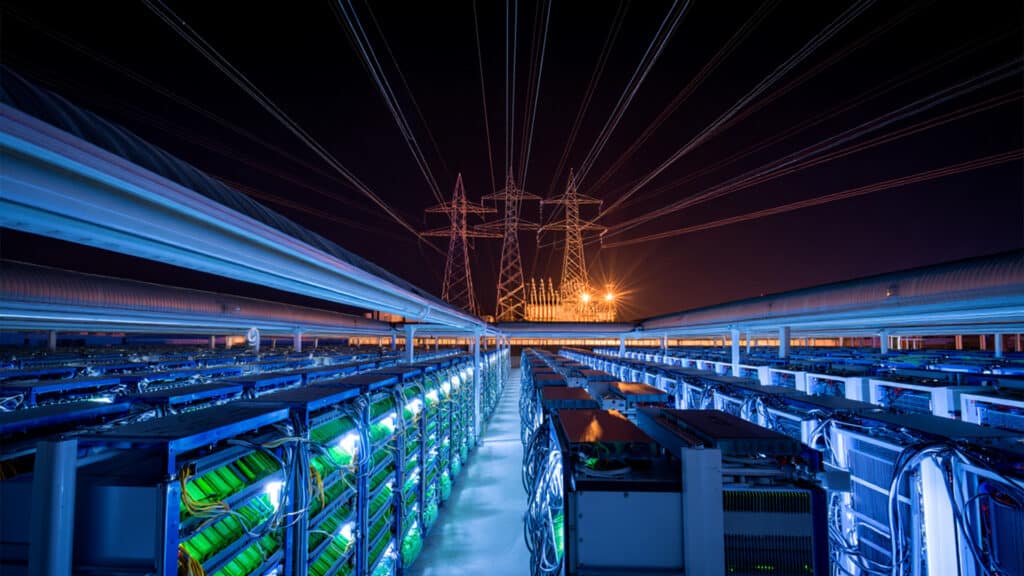Kazakhstan wants digital miners to contribute to energy system development

Digital mining farms could contribute to the development of power stations in Kazakhstan, according to Kanysh Tuleushin, first vice minister of digital development, innovation and aerospace industry of Kazakhstan. The official also believes that energy for mining farms could be produced by burning associated petroleum gas.
«Miners could help us upgrade our energy system. In the U.S., they participate in balancing the power grid, consuming extra energy when demand is low. In Kazakhstan, we have the 70/30 project, where foreign investors finance the modernization of thermal power stations, directing 70% of new capacity to the national power grid system and 30% for the needs of miners. One more example is the use of associated petroleum gas for data processing centers that could be located near big oil fields,» the vice minister wrote in an op-ed for the Kazakhstanskaya Pravda newspaper.
The official said associated gas could be used to produce electricity essential for crypto mining. The move would reduce the carbon footprint while boosting revenue for oil producers, Tuleushin said.
«Digital mining has developed in Kazakhstan, accounting for $34.6 million in tax revenue over the past three years. Since 2023, the government has registered 415,000 pieces of mining equipment, issued 84 licenses (64 valid, 13 suspended and seven revoked as their holders ceased to exist) and accredited five mining pools (three still active),» the vice minister said.
As a result, trade volume on exchanges at the Astana International Financial Centre (AIFC) grew from $324.2 million in 2023 to $1.4 billion in 2024. Notably, starting Jan. 1, 2025, crypto miners will be required to sell 75% of their assets via AIFC stock exchanges.
The vice minister believes Kazakhstan’s approach to crypto market development is very cautious. The country classifies all digital assets into two groups: covered assets (linked to real estate or patents, for example) and non-covered assets (Bitcoin, Ethereum, etc.). Trade in digital assets is allowed only within the AIFC. Experts estimate that the overall transaction turnover for digital assets in Kazakhstan reached $4.1 billion in 2023, with 91.5% conducted outside government oversight.
Last year, authorities closed 36 illegal crypto exchanges with a turnover of 60 billion tenge ($118 million), froze $4.8 million in assets, blocked more than 3,500 illegal online crypto exchanges and denounced two financial Ponzi schemes that used cryptocurrency to raise investments, Tuleushin recalled.
«However, if all restrictions were lifted and digital asset trading was allowed across Kazakhstan, the impact could be significant. Flexible rules would attract major players, as we saw in the UAE. Kazakhstan might become Central Asia’s crypto hub, competing with Uzbekistan and Kyrgyzstan, which have also embraced the market. Legalizing the gray zone would bring billions of tenge into the budget. For example, just a 10% tax could generate more than 190 billion tenge per year ($372.9 million), enough to construct dozens of new schools and hospitals from scratch,» the vice minister said.
In this regard, Tuleushin proposed introducing flexible cryptocurrency rules nationwide, not just within AIFC. He also believes transparent crypto exchanges and crypto ATMs are essential, and the Digital Ministry is already working on it. However, resolving these issues would require close cooperation with the National Bank and the Agency for Regulation and Development of the Financial Market.
According to Alikhan Smailov, chairman of the Supreme Audit Chamber, Kazakhstani crypto miners previously bought electricity from independent suppliers, bypassing the single buyer – the Settlement and Financial Center for Support of Renewable Energy Sources, LLP. He cited findings from a recent state audit of the electricity market. Smailov also mentioned that despite energy shortages, miners consumed 901 million kilowatt-hours, costing $25.5 million last year. Typically, they purchase electricity through centralized auctions held by the Kazakhstan Electricity and Power Market Operator, JSC, including electricity imported from Russia.

